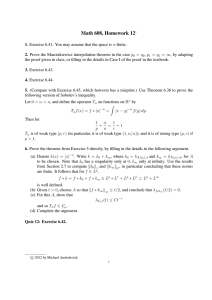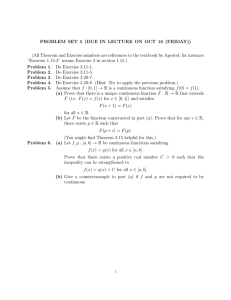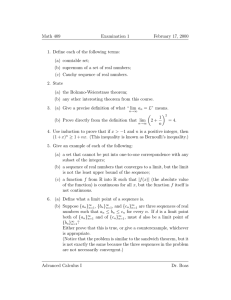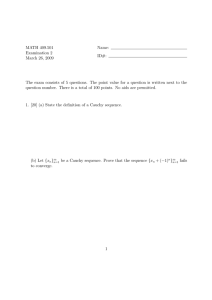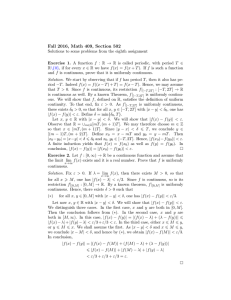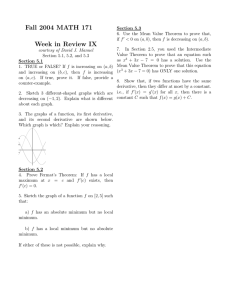Problem 1: No Free Lunch Theorem
advertisement
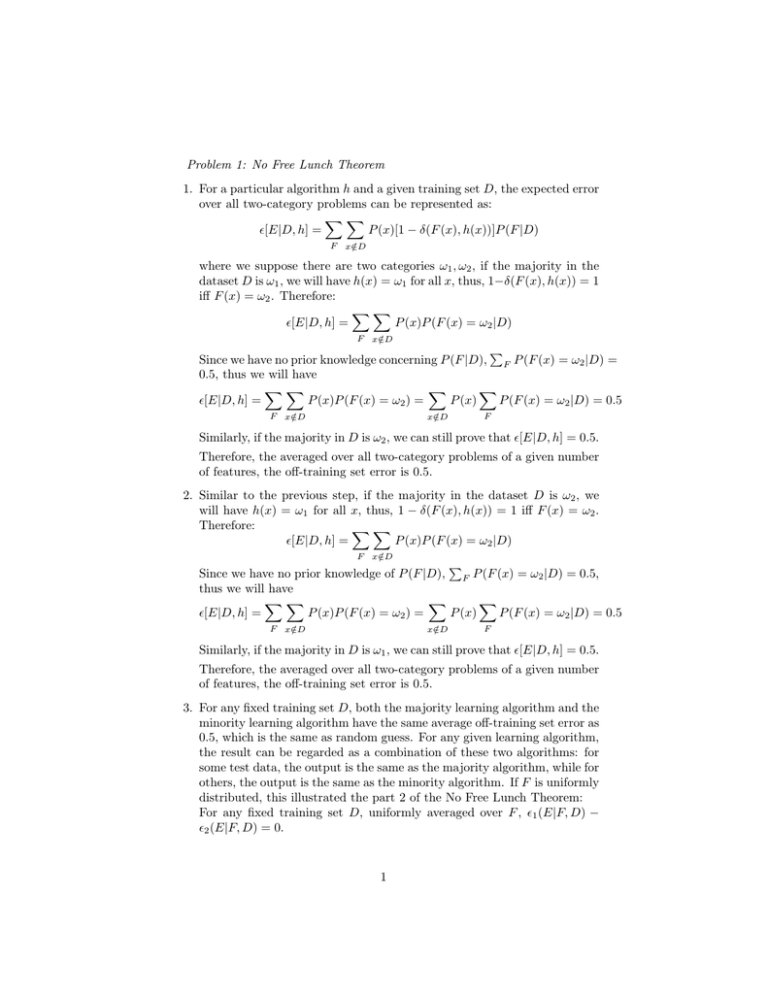
Problem 1: No Free Lunch Theorem 1. For a particular algorithm h and a given training set D, the expected error over all two-category problems can be represented as: XX P (x)[1 − δ(F (x), h(x))]P (F |D) [E|D, h] = F x∈D / where we suppose there are two categories ω1 , ω2 , if the majority in the dataset D is ω1 , we will have h(x) = ω1 for all x, thus, 1−δ(F (x), h(x)) = 1 iff F (x) = ω2 . Therefore: XX [E|D, h] = P (x)P (F (x) = ω2 |D) F x∈D / P Since we have no prior knowledge concerning P (F |D), F P (F (x) = ω2 |D) = 0.5, thus we will have XX X X [E|D, h] = P (x)P (F (x) = ω2 ) = P (x) P (F (x) = ω2 |D) = 0.5 F x∈D / x∈D / F Similarly, if the majority in D is ω2 , we can still prove that [E|D, h] = 0.5. Therefore, the averaged over all two-category problems of a given number of features, the off-training set error is 0.5. 2. Similar to the previous step, if the majority in the dataset D is ω2 , we will have h(x) = ω1 for all x, thus, 1 − δ(F (x), h(x)) = 1 iff F (x) = ω2 . Therefore: XX [E|D, h] = P (x)P (F (x) = ω2 |D) F x∈D / P Since we have no prior knowledge of P (F |D), F P (F (x) = ω2 |D) = 0.5, thus we will have XX X X [E|D, h] = P (x)P (F (x) = ω2 ) = P (x) P (F (x) = ω2 |D) = 0.5 F x∈D / x∈D / F Similarly, if the majority in D is ω1 , we can still prove that [E|D, h] = 0.5. Therefore, the averaged over all two-category problems of a given number of features, the off-training set error is 0.5. 3. For any fixed training set D, both the majority learning algorithm and the minority learning algorithm have the same average off-training set error as 0.5, which is the same as random guess. For any given learning algorithm, the result can be regarded as a combination of these two algorithms: for some test data, the output is the same as the majority algorithm, while for others, the output is the same as the minority algorithm. If F is uniformly distributed, this illustrated the part 2 of the No Free Lunch Theorem: For any fixed training set D, uniformly averaged over F , 1 (E|F, D) − 2 (E|F, D) = 0. 1
